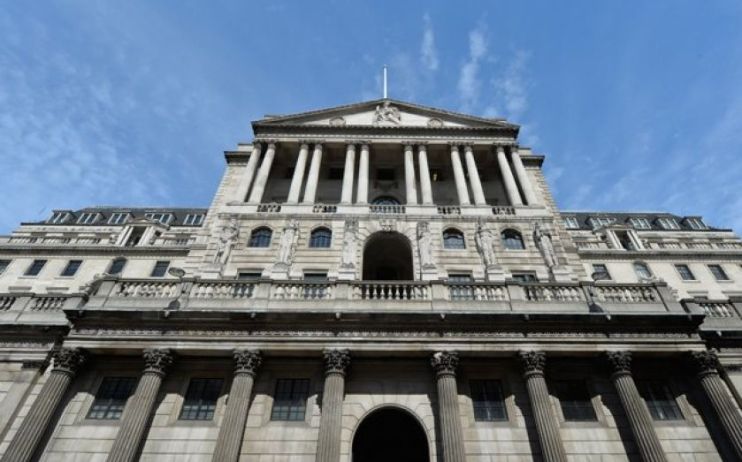Three reasons why the Bank of England won’t raise interest rates

The Bank of England should keep interest rates on hold tomorrow due to uncertainty over Brexit, global trade tensions, and recent weak UK data, City A.M.’s shadow monetary policy (MPC) has argued.
Read more: UK inflation falls to Bank of England target
Ongoing uncertainty over how Brexit will turn out, and the increasing chances of “no deal” under a Boris Johnson premiership, mean Mark Carney’s Bank will most likely wait until changing anything in the economy.
The raging US-China trade conflict has dragged down confidence worldwide. A rate hike would likely push up the pound, making UK exports less competitive at an already difficult time.
Recent data from the UK economy has suggested momentum may be slowing. GDP fell by 0.4 per cent month on month in April, official figures showed. Today official statistics showed inflation cooled to two per cent in May from 2.1 per cent in April.
What City A.M.’s shadow MPC decided
Guest chair: Mike Bell, JP Morgan Asset Management
Hold
With wages rising by 3.4 per cent year on year, unemployment at 3.8 per cent, and the Royal Institute of Chartered Surveyors’ housing market survey improving, it’s possible to make the case for a rate rise. However, several surveys suggest that the outlook for the UK and global manufacturing industry is deteriorating. Job growth in the UK and US has also slowed. Against this backdrop and with local and global political uncertainty still elevated, it’s best to stay on hold and wait and see whether or not the weaker parts of the data improve.
James Smith, ING
Hold
While stockpiling has exaggerated the recent dip in economic activity, growth is nevertheless set to remain fragile in the near-term as no-deal Brexit concerns begin to resurface.
Vicky Pryce, CEBR
Hold
Stockpiling, which helped activity early in the year, has now gone into reverse. Price pressures remain subdued, world economic prospects have worsened and Brexit uncertainty has if anything increased.
Simon Ward, Janus Henderson
Cut
Money growth remains too weak. GDP is on course to contract this quarter, inflation is quiescent and labour market strength has peaked, with vacancies falling for four straight months.
Read more: Pound falls as UK economy shrinks by 0.4 per cent in April
Jeavon Lolay, Lloyds Bank Commercial Banking
Hold
Continuing uncertainty around the global and domestic outlook argues for caution at this juncture. However, a case can be made for a modest tightening in policy if the uncertainty were to abate.
Kallum Pickering, Berenberg
Hold
Global uncertainties linked to trade wars and the China slowdown have increased while recent domestic economic data has softened. Better to signal that more rate hikes are likely eventually, but to wait for the risks to pass for now.
Simon French, Panmure Gordon
Hold
There are sufficient inflationary pressures in the UK economy to remain vigilant on interest rates. However, acute uncertainty over the path for Brexit, as well possible fiscal changes from a new prime minister, mean there is a low cost to waiting for more information.
Ruth Gregory, Capital Economics
Hold
Hold for now given the slew of weak activity data, political uncertainty about the next PM and subdued inflation. But with labour costs rising, signal the need for rate hikes further ahead.
Read more: CBI: UK manufacturing growth nears three-year low
Tej Parikh, Institute of Directors
Hold
Despite decent wage figures of late, with poor global growth forecasts and the how and when of Brexit still up in the air, it’s best to tread carefully for now.